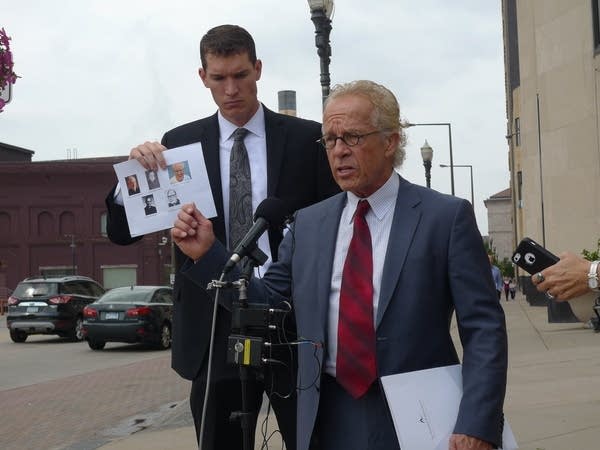Court document: Number of priests accused of child sexual abuse triples

Victims' attorneys Mike Finnegan (left) and Jeff Anderson (right) outside the Ramsey County courthouse on Aug. 4, 2014.
Madeleine Baran/MPR News
Go Deeper.
Create an account or log in to save stories.
Like this?
Thanks for liking this story! We have added it to a list of your favorite stories.


